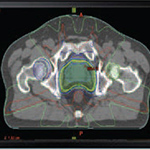New UC San Diego “Express License” Speeds Discovery-to-Marketplace Process
With the launch of a new "Express License" program, founding a company with technology invented at the University of California, San Diego just got easier.
With the launch of a new "Express License" program, founding a company with technology invented at the University of California, San Diego just got easier.

Snaking cables and racks of computer processors with winking blue lights fill a room in University of California, San Diego’s Mayer Hall. It’s a powerful resource, made more so through links to a network of more than 80 similar centers distributed across the country.

How do you accelerate innovation in the health care field, and other areas, while keeping costs down? A report released today, and co-authored by the von Liebig Center for Entrepreneurism and Technology Advancement at the UC San Diego Jacobs School of Engineering, provides some answers.

A first-time workshop highlighting the latest advances in the Kepler Scientific Workflow System brought together researchers and computational scientists to discuss a wide array of innovative uses for the software application, ranging from data curation of natural science collections to facilitating nuclear fusion computations.

The California Institute for Telecommunications and Information Technology (Calit2) has announced the second round of its Calit2 Strategic Research Opportunities (CSRO) grant program. Faculty and research scientists at the University of California, San Diego are eligible to submit proposals for funding and in-kind support, with all proposals due no later than July 27, 2012. Winning proposals will be announced in August for one-year projects that will begin effective October 1, 2012.

A team of doctors and scientists, led by researchers at the University of California, San Diego School of Medicine and the Howard Hughes Medical Institute, say de novo somatic mutations in a trio of genes that help regulate cell size and proliferation are likely culprits for causing hemimegalencephaly, though perhaps not the only ones.

Keep up with all the latest from UC San Diego. Subscribe to the newsletter today.
You have been successfully subscribed to the UC San Diego Today Newsletter.